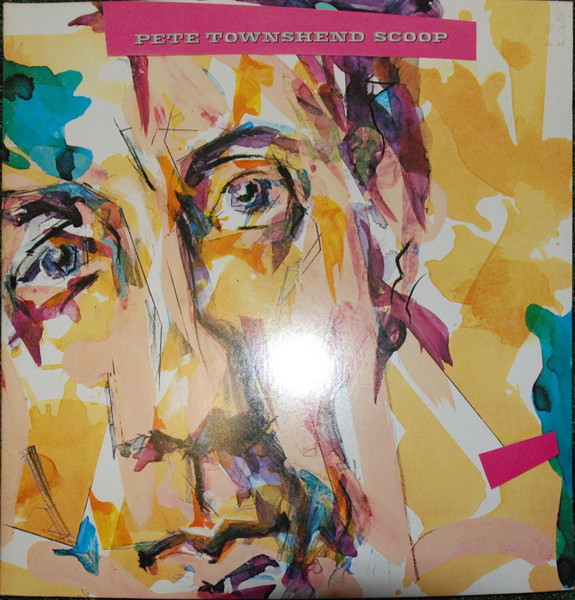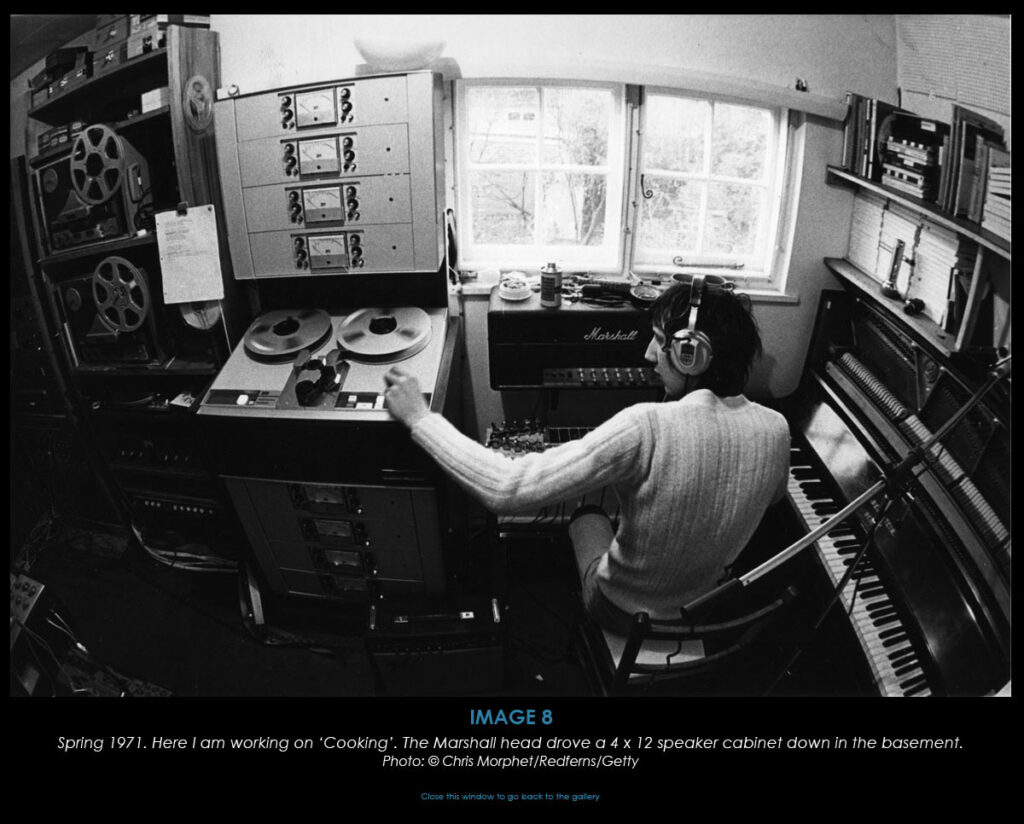I’m going to start a review of Pete Townshend’s Scoop by mentioning Nick Drake and John Martyn. Bear with me.
My introduction to Nick Drake was 1972’s Pink Moon, arguably one of the decade’s greatest, underappreciated (at the time) albums. It was his last studio album but recorded without a backing band, raw, stripped back – and I love it more because of that. It is unsullied by unnecessary overproduction and backing instruments which plagued his first two LPs. Similarly, London Conversation was my first exposure to John Martyn, again, very simple. Just him and his guitar, his distinctive voice and brilliantly crafted songs, and it stands head and shoulders over his later, more busy, more produced albums.
I think in many ways those two albums have influenced my musical tastes more than I realise. Certainly my passion for acoustic tracks, home recordings and demos. I love hearing the way songs come together simply, melodically and rhythmically, paired right back so that the meaning of the music is amplified severalfold.
There are many other examples (The Beatles’ Get Back documentary/soundtrack, for example, Nirvana’s MTV Unplugged sessions is another) but probably my current favourites are the demos and home recordings of Pete Townshend. The recent box sets of Quadrophenia and Tommy are testament to this and I’ll happily play the entire demos disc of both albums in preference to the studio versions (which I also love, by the way).
I knew when buying those Who box sets that the demos and home studio recordings would be good largely due to Scoop.

Scoop is the first of three LPs (Another Scoop and Scoop 3 released in 1987 and 2001 respectively) containing The Who and solo demos from Townshend’s vast catalogue.
We kick off with an acoustic version of So Sad About Us, complete with intro by Pete himself. A lovely demonstration of Townshend’s guitar prowess. But, alas, at 2:26 it abruptly stops and heads straight into Brr. Brr is a great piece of music that sounds like it would fit on Rough Mix (1977) quite happily but I’d have preferred it if the entirety of So Sad had survived. Zelda is a standout from side one for me, it reminded me of Michael Nyman (reviewed here too) with the ‘heartbeat’ of violin going through the entire track, and as far as I know, appeared nowhere else other than this compilation. I couldn’t see it on any Who album but it would have played nicely with other solo stuff I think.
If Zelda didn’t really feel like a Who track, Politician, another great track early on in the album, certainly does. It uses a riff copied unashamedly from another recorded cover, Heatwave, and sounds like it could have been early Who at their best. Amazing it appears here and nowhere else.
Dirty Water reminds us again of perhaps a song written directly for Ronnie Lane on Rough Mix, before we come to more familiar territory with Circles. I really like this acoustic cutback version (see above). We are then into a couple of instrumental pieces. Tipperary is a bit of fun but the unused piece from Quadrophenia is chilling, showing what a rich seam of form Townshend was hitting during this period.
A demo track from Sell Out (bonus tracks 1995) is next, Melancholia – actually one of my favourite tracks from the album – hints of things to come from Mr Townshend.
Bargain, a very well-respected track from Who’s Next and a real Who classic, gets the demo treatment next. Of course, the demo doesn’t match the full band Who sound and, in that respect, isn’t as immediately good, but going back to my love of demos, it’s just wonderful hearing how Pete crafted the song, played every instrument, recorded it end to end, and then simply took it to the studio and said ‘Got another one for you.’ His method was pure genius and worked well.
The side ends with Behind Blue Eyes which needs no introduction. An acoustic version I’ve not heard anywhere else other than this album. Harmonising with himself, the track never reaches the full crescendo the Who version does, and it’s a completely different track because of that. Lovely.

So many great tracks on side 2, including Cookin’ (see the image above) – “I didn’t know how much I loved you, till I tasted your cooking” – but to get there you go through Cache Cache and Magic Bus, both great versions.
You’re So Clever and Body Language can probably be passed by and are a noticeable dip in quality, in my opinion, to what surrounds them, and the filler of Initial Machine Experiments just shows us how much Townshend liked ‘nurdling’.
I absolutely love the next track Mary. It’s hard to easily sum up Pete Townshend or The Who and my deep admiration of them with one track, but Mary comes close to doing the job. The way the song flows, and the feeling he manages to put into the vocals and melody. Just superb.
It feels like the next few tracks are used to fill up space, however. Could it be we’re running out of quality demos already? That doesn’t bode well for Another Scoop or Scoop 3 and the answer is, of course, no, but it feels almost like we’re being brought down a little before we are hit with Love Reign O’er Me. There are many versions of this track, solo, acoustic, and different band versions – all of them worth listening to, and it ends the album nicely.
The more I listen to Scoop the more I like it. I will be bold and say any Who fan who has taken the time to appreciate Townshend’s writing style and song craftsmanship is going to enjoy this album, and who knows, this may just be the gateway (gatefold?) drug you have been waiting for to open up the world of Pete’s demos.
